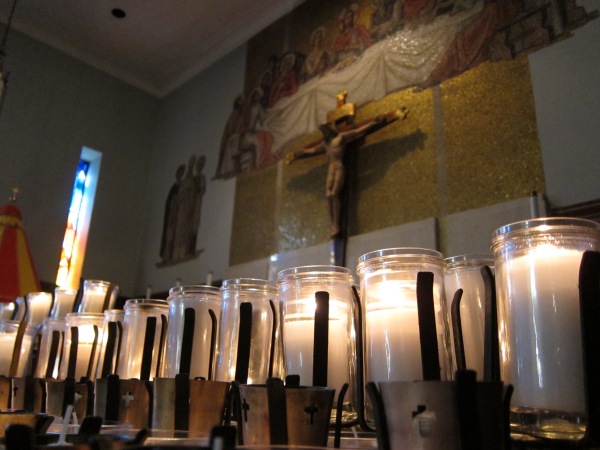Genesis 12 ; Gospel of John 13, 18
I miss read the lectionary for today. I went to Genesis rather than Exodus. But that is when I realized something I had never thought of before.
It occurs to me that Sarai, the wife of the patriarch Abram, has something in common with Jesus. Both had their identities betrayed by someone they loved and trusted.
Earlier in this Lenten season we found ourselves confronted by the call of God to Abram to leave Ur, when we follow that narrative to Genesis 12 we find Abram and Sarai called again to leave for a new land. This time they are traveling from Haran into Egypt. Verses 10-20 are often left out of the lectionary which stops at verse 14. It’s almost as if the lectionary is trying to avoid the issue of true identity as it is fully raised in the text. You see, in the narrative Abram asks Sarai to pretend to be his sister rather than his wife. Thus, Sarai briefly becomes one of the wives of Pharaoh. When Pharaoh discovers this he returns Sarai to Abram and sends them on their way richer than when they arrived. So the patriarch seems to pimp his wife for wealth and power. Why would the lectionary avoid that!?
We don’t hear Sarai’s thoughts on these events. We can imagine what a wife might say to a spouse who asked her to pretend to be a sibling rather than a spouse~I’ll share my popcorn we can watch the show. But that is not in the text. What is in the text is that Sarai’s husband had to the power to change her identity, to say who she was. Furthermore we see that the redefinition of Sarai’s identity leads her to yet another whole identity completely.
It is Maundy Thursday, one of my favorite days of the Christian year. (Should I offer a prize for the reader who can guess my other favorite?) Jesus has gathered with the disciples in the Upper Room to celebrate the Passover feast, to wash their feet, to proclaim that his body and life are given for them (and us), and to proclaim his coming betrayal. The text tells us that it is as Jesus does these things that the decision is made in Judas’ heart to betray the Master. Jesus even tells Judas to go and do what must be done. Judas, one of the twelve disciples, one of Jesus’ trusted friends is the one who betrays him. It is Judas who must decide who he thinks Jesus is, and then Judas based on that decision will collude with the powers that be. It is Judas who will signal Jesus’ identity with a kiss in the garden.
In both these texts the issue of personal identity are the key issues. In both of these texts someone else decides whom the other is and takes action that will radically alter the both the life of the other, the life of the decider, and the unfolding of history.
As a woman with disabilities, many of which are hidden, I know what it is like to have others decide who I am. I know what it is like to be “in the closet”, having relationships in which there is little knowledge of my disability, and the anger others show when I come out of that closet and let my full identity be known. I know what it is to be vulnerable with others to let them know the depths of my experience and have to trust that they will know with whom and when to share that knowledge. I know what it is like to feel that trust betrayed. To watch at the annual school-house parent night as your parent outs you sharing with the teachers about your disabilities in front of classmates and other teachers. I know what it is like in the workplace when co-workers sense there is something different about you, but not knowing what it is decide they will name it–and I know what it is like when others redefine your identity so far from your known truth that it disrupts and utterly re-routes your own sense of self. With disability it is not so much identity politics as it is identity of individuality/self that is intertwined with experience of living in a body so different from the norm that with world around you is rife with barriers that disable. Life with disability is asking each individual you encounter, in some way–who do you say that I am?
Loving God, You who know me better than I know myself. You who created me to be fearlessly and wonderfully made. Help me to know myself, to share myself, and delight in the friends I break bread with. Empower me to raise my face even when others define me in ways that threaten my identity or life. Grant me Your strength and love, to always know myself, and to do Your will. Amen.
